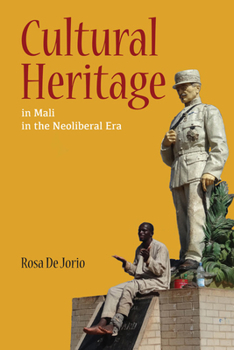Cultural Heritage in Mali in the Neoliberal Era
(Part of the Interpretations of Culture in the New Millennium Series)
Up to 2012, Mali was a poster child of African democracy, despite multiple signs of growing dissatisfaction with the democratic experiment. Then disaster struck, bringing many of the nation's unresolved contradictions to international attention. A military coup carved off the country's south. A revolt by a coalition of Tuareg and extremist Islamist forces shook the north. The events, so violent and unexpected, forced experts to reassess Mali's democratic institutions and the neoliberal economic reforms enacted in conjunction with the move toward democracy. Rosa De Jorio's detailed study of cultural heritage and its transformations provides a key to understanding the impasse that confronts Malian democracy. As she shows, postcolonial Mali privileged its cultural heritage to display itself on the regional and international scene. The neoliberal reforms both intensified and altered this trend. Profiling heritage sites ranging from statues of colonial leaders to women's museums to historic Timbuktu, De Jorio portrays how various actors have deployed and contested notions of heritage. These actors include not just Malian administrators and politicians but UNESCO, and non-state NGOs. She also delves into the intricacies of heritage politics from the perspective of Malian actors and groups, as producers and receivers--but always highly informed and critically engaged--of international, national and local cultural initiatives.
Format:Paperback
Language:English
ISBN:0252081722
ISBN13:9780252081729
Release Date:July 2016
Publisher:University of Illinois Press
Length:224 Pages
Weight:0.75 lbs.
Dimensions:0.7" x 6.0" x 8.9"
Customer Reviews
0 rating





